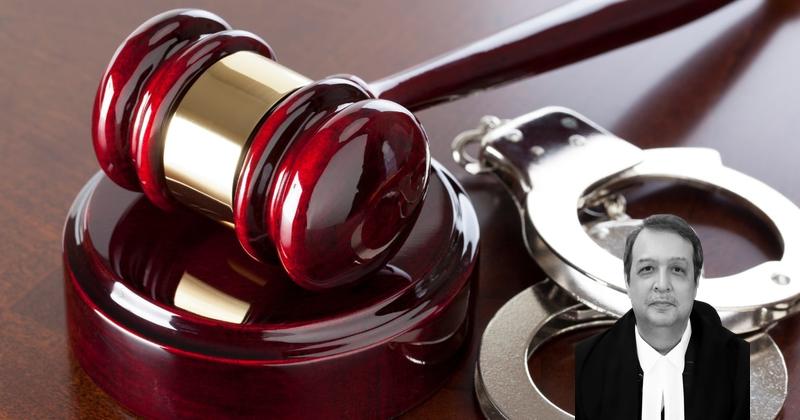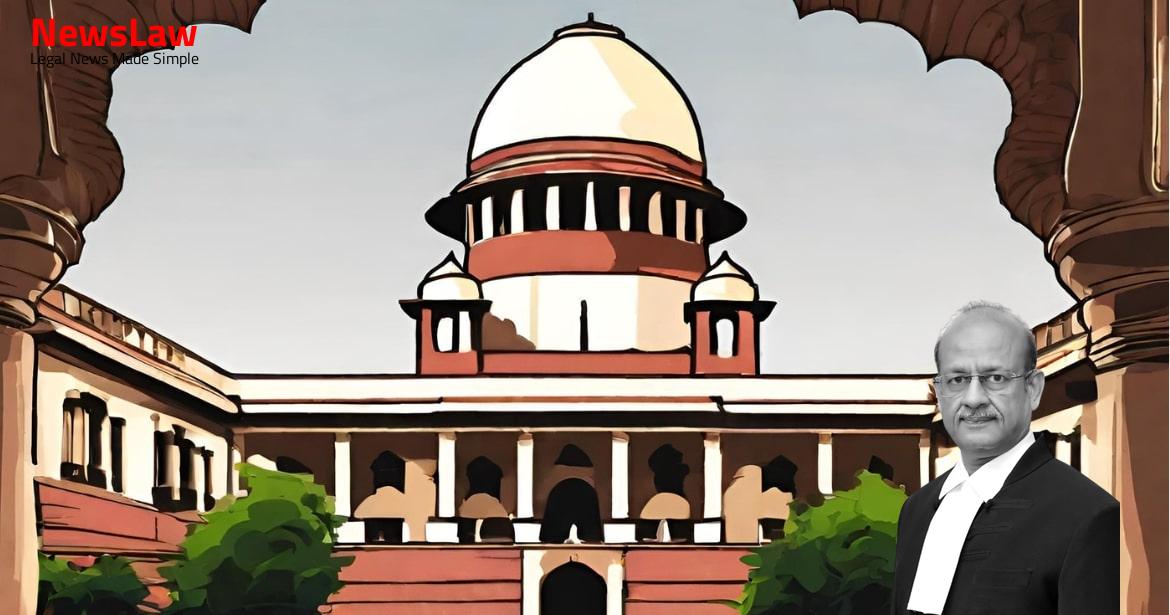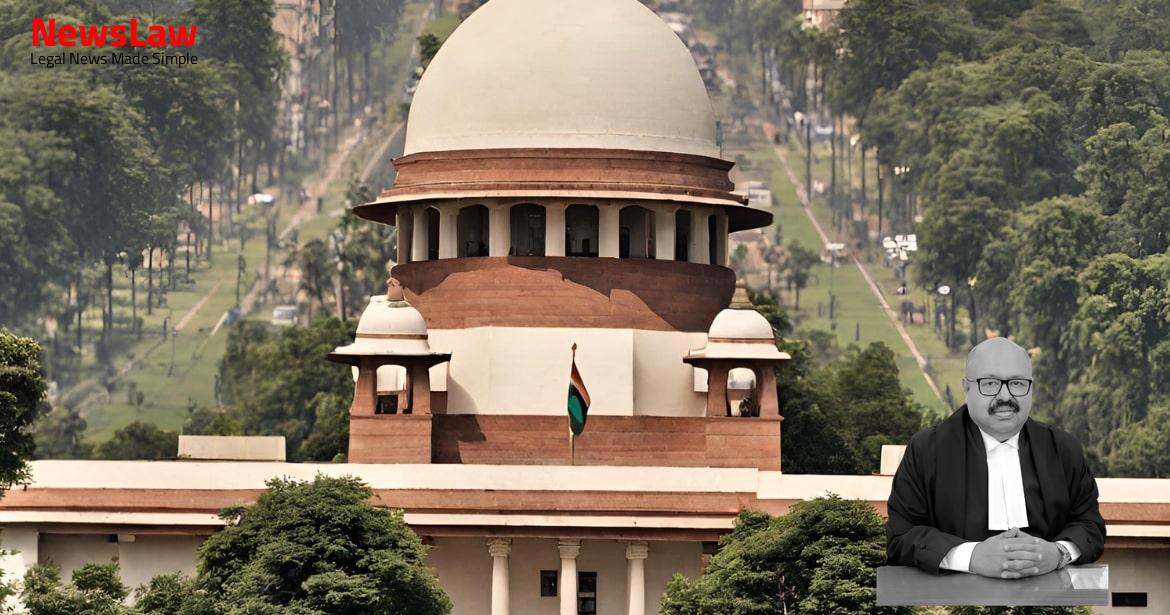2024 INSC 3 IN THE SUPREME COURT OF INDIA ORIGINAL CIVIL/CRIMINAL JURISDICTION Writ Petition (C)
No 162 of 2023 Vishal Tiwari…Petitioner Versus Union of India & Ors. Recommendations of the Expert Committee to strengthen regulatory framework and secure compliance to protect investors………………………. A batch of writ petitions filed before this Court under Article 32 of the Constitution in February 2023, raised concerns over the precipitate decline in investor wealth and volatility in the share market due to a fall in the share prices of the Adani Group of Companies. The situation was purportedly caused by a report which was published on 24 January 2023 by an “activist short seller”, Hindenburg Research about the financial transactions of the Adani group. The petitioner in WP (Crl.)
No 57 of 2023 seeks directions to the competent investigative agencies to (i) investigate the transactions of the Adani group under the supervision of a sitting judge of this Court; and (ii) investigate the role of the Life Insurance Corporation of India and the State Bank of India in such transactions; d. When the batch came up for hearing on 10 February 2023, this Court noted that there was a need to review the existing regulatory mechanisms in the financial sector to ensure that they are strengthened with a view to protect Indian investors from market volatility. On 6 May 2023, in compliance with the above interim order, the Expert Committee submitted its report to this Court. In its order dated 17 May 2023, this Court directed that copies of the report shall be made available to the parties and their counsel to enable them to assist the Court in the course of further deliberations. Mr Prashant Bhushan, appearing on behalf of the petitioner broadly pressed his case for two directions: firstly, a direction to constitute an SIT to oversee the SEBI investigation into the Adani group and that all such investigations be court- monitored; and second, a direction to SEBI to revoke certain amendments made to the SEBI (Foreign Portfolio Investments) Regulations, 2014 and the SEBI (Listing Obligations and Disclosure Requirements) Regulations, 2015.
The Hindenburg Report and certain newspaper reports allege that some Foreign Portfolio Investments in Adani group stocks in the Indian stock market are owned by shell companies based outside India, which have close connections with the Adani group. SEBI must be directed to revoke amendments to the FPI Regulations which have done away with restrictions on opaque structures. SEBI must be directed to revoke the amendment made to its LODR Regulations which have altered the definition of “related party”; g. Twenty-two out of twenty-four investigations being conducted by SEBI are complete. The delay by SEBI in filing the report is only ten days which is unintentional and not willful, given that twenty-four investigations were to be carried out; c. After having received DRI’s letter, SEBI sought information from DRI on the subject and received a response. The amendments have tightened the regulatory framework by making disclosure requirements mandatory and removing the requirement of disclosure only when sought. In other words, directions in relation to both the regulatory and delegated legislative powers of SEBI are being sought by the petitioners. SEBI is empowered to regulate the securities market in India by the SEBI Act 1992, the SCRA and the Depositories Act 1996.
SICGIL India Ltd, examined the role of independent regulatory bodies such as SEBI in public administration and upheld the primacy of SEBI as the forum to adjudicate violations of its regulations. The court cannot examine the correctness, suitability, or appropriateness of the policy, particularly when it PART B is framed by a specialized regulatory agency in collaboration with experts. The legality of the policy, and not the wisdom or soundness of the policy, is the subject of judicial review; c. This Court must be mindful of the public interest that guides the functioning of SEBI and refrain from substituting its own wisdom in place of the actions of SEBI.
According to the petitioners, the disclosure of the ownership of the FPIs investing in the Adani stocks lies at the heart of the alleged violation of Rule 19A. The FPI Regulations, 2014 had mandated the disclosure of the ultimate beneficial ownership by natural persons of the FPI under the provisions concerning “opaque structures” in ownership of FPIs. In these amendments, the definition of “related party” was amended to include persons holding 20% or more in the listed company whether directly or indirectly or on a beneficial interest basis under Section 89 of the Companies Act, 2013 with effect from 1 April 2022. The Expert Committee report has opined that these amendments were necessitated to address the mischief or contrivance of effecting a transaction involving a transfer of resources between a listed company and a third party which is not a related party, only to technically escape the rigours of compliance applicable to a related party transaction, to thereafter transfer the resources from the unrelated party to a related party. These amendments have allegedly made it difficult to investigate the acquisition against the Adani group for flouting minimum public shareholding regulations by engaging in related party transactions through FPIs. SEBI in its affidavit dated 10 July 2023 has submitted that the entire rouse around regulatory failure caused by amendments to FPI Regulations and LODR Regulations was initiated because of SEBI’s submissions before the Expert Committee in the context of challenges faced in obtaining information regarding holders of economic interest. Mandatory upfront disclosure meant that the undertaking to disclose beneficial ownership by FPIs was a vestige. SEBI contends that a challenge arises due to differing regulations in jurisdictions where entities with economic interest in an FPI operate.
The petitioners have not challenged the vires of the Regulations but have contended that there is regulatory failure based on SEBI’s alleged inability to investigate which is attributed to changes in the regulations. We do not see any valid grounds raised for this Court to interfere by directing SEBI to revoke its amendments to regulations which were made in the exercise of its legislative power. This Court does have the power under Article 32 and Article 142 of the Constitution to transfer an investigation from the authorized agency to the CBI or constitute an SIT. Superintendent of Police CBCID South Zone, Chennai reiterated the principle that the power to transfer an investigation to investigating agencies such as the CBI must be invoked only in rare and exceptional cases. Twenty-two final investigation reports and one interim investigation report have been approved by the competent authority PART D under SEBI’s procedures.
of Investigations 1 Minimum Public Shareholding- alleged violation of Rule 19A of Securities Contracts (Regulation) Rules, 1957 1 2 Alleged manipulation of stock prices in contravention of existing laws 2 3 Alleged related Party Transactions (RPT)-Failure to disclose transactions with Related Parties and other relevant information 13 4 Other Issues: (A) Possible violation of SEBI (Foreign Portfolio Investors) Regulations, 2014 and 2019 (B) Possible violation of SEBI (Substantial Acquisition of Shares and Takeovers) Regulations, 2011 (C) Trading-Pre-post Hindenburg Report (D) Possible violation of SEBI (Prohibition of Insider Trading) Regulations, 2015 1 1 5 Total 24 PART D SEBI’s status report and the details of the twenty-four investigations does not indicate inaction by SEBI. This Court by its order dated 17 May 2023, granted SEBI an extension of time till 14 August 2023 to submit its status report about its investigation. To assail the adequacy of SEBI’s investigation thus far, the petitioner has sought to rely on a report published by OCCRP and various newspapers referring to the report. In addition to the OCCRP report, the petitioners have also relied on a letter dated 31 January 2014 sent by the DRI to the then SEBI Chairperson.
The petitioner is re-agitating an issue that has already been settled by concurrent findings of the DRI’s Additional Director General, the CESTAT and this Court. The allegations against certain members of the committee were raised by the petitioner for the first time only on 18 September 2023 almost six months after the constitution of the committee and several months after the Committee had submitted its report in May 2023. To buttress the submission, the petitioner has merely averred to one order of the SEBI Board dated 25 May 2007 which indicates that Mr Sundaresan has appeared for Adani Exports Ltd on an unconnected issue. The petitioner has not established the link between these unsubstantiated allegations and the appointment of Mr Bhatt and Mr Kamath to the committee. The Expert Committee met on 17 March 2023 and noted that it would require specific factual briefings from SEBI on all four aspects within the remit of the Committee. This volatility was examined by the Expert Committee, which after examining the facts presented by SEBI and engaging with market participants, opined that the impact of the Adani group-related events on the overall market was low. According to the Expert Committee the trend observed in volatility in the Indian market in comparison with the global volatility index has been consistent since the COVID-19 pandemic and was maintained even during the period when volatility was observed in the Adani stocks. In its note filed in compliance with this Court’s order dated 10 February 2023, SEBI had submitted that it has implemented measures to deal with issues which may impact sudden and unusual price movements, excessive volatility, etc.
SEBI as the statutory regulator has stated that it would complete the process in accordance with law. SEBI has submitted that short selling is a desirable and essential feature to provide liquidity and to help price correction in over-valued stocks and hence, short selling is recognised as a legitimate investment activity by securities market regulators in most countries. SEBI and the investigative agencies of the Union Government shall also enquire into whether there was any infraction of law by the entities, which engaged in short-selling on this occasion.
Also Read: https://newslaw.in/?p=652
Before the Expert Committee, SEBI submitted that there has been no market default owing to price movements due to the measures taken by SEBI. Measures to communicate relevant information in a comprehensive manner to the investors are therefore imperative for informed decision making. In particular, SEBI has submitted that the recommendations on creation of a financial redressal agency, central unclaimed property authority, and framework to set up a multi- agency committee would require multiple regulators and the Government may need to look into these recommendations.
The Expert Committee was also directed to suggest measures to (i) strengthen the statutory and/or regulatory framework; and (ii) secure compliance with the existing framework for the protection of investors.
Timelines:
SEBI must lay down and adhere to strict timelines for initiation of investigations, completion of investigations, initiation of proceedings, disposal of settlement, and disposal of proceedings; f. SEBI has inter alia submitted that its existing framework already accounts for the recommendations of the Expert Committee on effective enforcement policy, judicial discipline, settlement policy, and surveillance & market administration measures. We direct the Government of India and SEBI to consider these suggestions and to take the benefit of the efforts put in by the Expert Committee. Since a member of the Bar who was a member of the Committee has been appointed to the Bench since the submission of the report, the Chairperson of the Committee will be at liberty to nominate a member with legal expertise and domain knowledge for the purpose of interacting with the Union Government and SEBI. No valid grounds have been raised for this Court to direct SEBI to revoke its amendments to the FPI Regulations and the LODR Regulations which were made in exercise of its delegated legislative power. In an appropriate case, this Court does have the power to transfer an investigation being carried out by the authorized agency to an SIT or CBI.
The Union Government and SEBI shall constructively consider the suggestions of the Expert Committee in its report detailed in Part F of the judgment.
We are grateful to all the members and the Chairperson of the Expert Committee for their time, efforts, and dedication in preparing their erudite, comprehensive, and detailed report in a time-bound manner. [Dr Dhananjaya Y Chandrachud]
Case Title: VISHAL TIWARI Vs. UNION OF INDIA (2024 INSC 3)
Case Number: W.P.(C) No.-000162 / 2023



